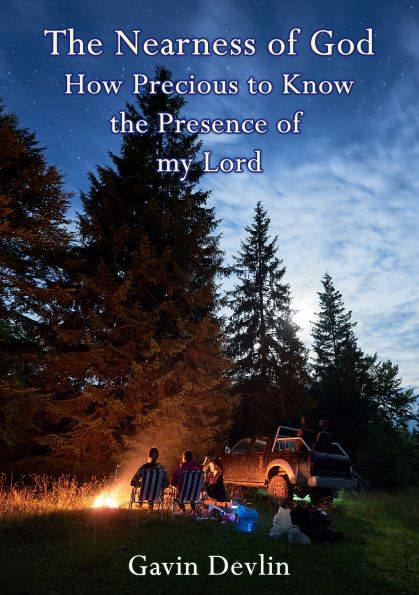Overcoming Evil with Good in Post WW2 Japan
I have been reading an amazing book on the 7 year post war occupation by Douglas MacArthur and the US of Japan named Embracing Defeat (2000 Pulitzer Prize Winner) by John W. Dower, and I found an amazing anecdote of overcoming evil with good. But to understand it we need some context on what the situation was like in Japan at the time.
When Japan surrendered to the United States, the country was utterly decimated from American bombing:
“Sixty-six major cities, including Hiroshima and Nagasaki, had been heavily bombed, destroying 40% of these urban areas overall and rendering around 30% of their populations homeless. In Tokyo, 60% of all residences were destroyed. In Osaka and Nagoya, the country’s second and third largest cities, the figures were 57% and 89%. The first American contingents to arrive in Japan – especially those that made the several-hour journey from Yokohama to Tokyo – were invariably impressed, if not shocked, by the mile after mile of urban devastation they encountered. Russell Brines, the first foreign journalist to enter Tokyo, recorded that ‘everything had been flattened… Only thumbs stood up from the flatlands – the chimneys of bathhouses, heavy house safes and an occasional stout building with heavy iron shutters.’ The first photographs and newsreel footage from the conquered land captured these endless vistas of urban rubble for American audiences thousands of miles away who had never really grasped what it meant to incinerate great cities.”
I think that most of us nowadays have no grasp of what it means “to incinerate great cities,” nor what it means to be involved in a war, especially a total war like WW2.
“Close to 9 million people were homeless when the emperor told them they had fought and sacrificed in vain. ‘In every major city,’ as one American described the scene, ‘families were crowded into dugouts and flimsy shacks or, in some cases, were trying to sleep in hallways, on subway platforms, or on sidewalks. Employees slept in their offices; teachers, in their schoolrooms” – if, of course, they were fortunate enough to still have offices or schoolrooms to sleep in. The streets of every major city quickly became peopled with demoralized ex-soldiers, war widows, orphans, the homeless and unemployed – most of them preoccupied with simply staving off hunger. Yet even these individuals were relatively fortunate. At least they were in their own country.”
Japanese involved in the war effort were scattered all over Asia, Siberia, and the Pacific Ocean: 3.5 million soldiers and sailors and another 3 million civilians.
“All of these individuals naturally looked forward to returning home quickly, and their kin anxiously awaited them. For many, however, repatriation would take years not months, and hundreds of thousands were destined to die without seeing their homeland again. For these millions of individuals, surrender merely marked the beginning of a new stage in lives of escalating uncertainty and brutalization. They became victims of the chaos that reigned in war-torn “liberated” Asia (note: China became difficult to escape as the Civil War resumed and both sides would make use of Japanese as labor and even as fighters), of epidemic diseases, and of maltreatment by the victorious Allies (note: especially the Soviets, who, though they only declared war on Japan a week before they surrendered, would bring Japanese to help rebuild their nation and many hundreds of thousands would be lost. This is especially petty considering if Japan had ever opened up a 2nd front against the USSR and helped the German Invasion, USSR surely would have collapsed. The British and Dutch also kept Japanese POWs to help reassert themselves in their old Colonial territories). In September 1946, more than a year after the emperor’s broadcast [of surrender], over 2 million Japanese still remained UN repatriated and the government acknowledged that the where-abouts of 540,000 others were unknown.”
Even when soldiers came back home, they didn’t get the welcome they expected.
“For a great many ex-soldiers and sailors, the greatest shock of returning home lay in finding themselves treated, after all their travails, as pariahs in their native land. By 1946, when the tide of repatriated became a flood, those at home were already being exposed to a steady flow of information concerning the shocking range of atrocities committed by the imperial forces in China, Southeast Asia, and the Philippines, as well as against Allied prisoners generally. As a result, many ex-servicemen found themselves regarded not just as men who had failed disastrously to accomplish their mission, but also as individuals who had, it was assumed, participated in unspeakable acts. References to the reproachful glances that acquaintances and strangers alike directed at them became a familiar refrain in veterans’ letters to the press. Some frankly and sincerely expressed regret for their crimes. Others protested their innocence and the injustice of being treated as war criminals. They pleaded that the public had to make distinctions between soldiers or military men (gunjin) and the “military cliques” (gunbatsu) who were ultimately responsible for the war and its conduct.”
Finally we get to the letter written by a soldier to that I originally wanted to share. In the letter he says he became possessed by a devil. I think we can see how terrible circumstances allow devils to flourish, just like wounded and dead animals cause flies and vultures to flourish. Satan loves such an environment. But we see the heroism and power of “overcoming evil with good” or moral non-resistance (resist not evil) even at this time, among people who are not Christian but are responding to the spirit of Christ – who of course is doing his utmost to help his suffering children in such calamitous times.
This letter was published in Asahi on June 9, 1946, capturing the bleakness of coming home for a soldier:
“I returned to Japan from the southern regions on May 20. My house was burned, my wife and children mission. What little money I had quickly was consumed by the high prices, and I was a pitiful figure. Not a single person gave me a kind word. Rather, they cast hostile glances my way. Tormented and without work, I became possessed by a devil.”
The historian explains what happened to this man:
“His ‘devil’ was the impulse to turn to crime. The writer went on to describe how he accosted a young man on a dark street, intending to rob him, only to discover that he was assaulting an off-duty policeman. His story, as it turned out, had an uplifting ending. The policeman did not arrest him, but gave him a hundred yen and some of his own clothing, while urging him to have faith in his ability to surmount difficulties. Though the writer was still without wife or child or home or job or money, his letter was offered as a public vow that he would go straight thereafter.”
When good is done to man who believes he should be given evil and punishment, it shakes the conscience and awakens the soul. The words that follow such an act linger with he person and have moral force, like this policeman’s urging not to give up.
We have catalogued this in this book Resist Not Evil (https://maranathamedia.com/book/view/resist-not-evil). Please read it, as this knowledge will become more and more important as we getting into more and more chaotic times.
I don’t feel it right to end here with this loving story. The historian continues about how, in general, there was no strong tradition of helping the misfortunate. In fact, this help for the downtrodden we take for granted as being part of human nature, when in the west it is actually a tradition inherited from Christianity. The social work, the orphanages, the helping the disabled, etc. is not so common to non-Christian societies, who often see these things as fearful and cursed, and therefore the natural instinct is to avoid rather than help such people. Such is the case here in Thailand, where the monks meditate and preach, but aren’t doing charity work much. It is this type of work that many admire about Christianity. A lot of this comes from the great (and maybe to non-believers, naïve) doctrine of redemption: that people can change and overcome their deep-rooted character flaws.
Let us continue:
“Many of the most pathetic Japanese war victims now became the country’s new outcasts. Despite a mild Buddhist tradition of care for the weak and infirm, despite Confucian homilies about reciprocal obligations between social superiors and inferiors, and despite imperial platitudes about all Japanese being ‘one family’ under the emperor, Japan was a harsh, inhospitable place for anyone who did not fall into a ‘proper’ social category. There existed no strong tradition of responsibility toward strangers, or of unrequited philanthropy, or of tolerance or even genuine sympathy (as opposed to occasional sentimentality) toward those who suffered misfortune."
This is no doubt true to some degree of all cultures and societies, but it was a especially conspicuous phenomenon in Japan at war’s end, when whole new categories of ‘improper’ people felt the sting of stigmatization. These included survivors of Hiroshima and Nagasaki, with their taint of – really, their pollution by – radiation; war orphans and street children, forced to live by their wits outside ‘proper’ society; war widows, especially if poor, in a society inherently unkind to women without men; and homeless ex-servicemen or any of the other abandoned people who clogged public places such as Tokyo’s Ueno station.”
Our societies’ that seem strong and resilient and moral only seem so because it is the good times. When things get terrible, they we will see the true moral character and love of a people. And like the Japanese here, we will be found wanting, as “love grows cold.” Our judgmental hearts and old covenant natures will manifest in selfishness and blaming others, and we will see that we don’t have it in ourselves to help strangers.
Even the heartwarming story above of the policeman and the soldier, the policeman tells him to “faith in his own abilities” to get out of his problem. Oh, but how when the problem is so huge! Here is where God is needed.
“One of the most fashionable slogans of early postsurrender period envisioned Japan becoming a ‘nation of culture.’ In October 1946, Hayashi Fumiko, a well-known fiction writer from an impoverished background herself, argued in a popular magazine that no country so indifferent to the plight of orphans and the homeless could claim to be cultured. Over two years later, Osaragi Jiro, a distinguished author respected for his humanism, wrestled frankly with the same issue. A British acquaintance, he wrote, had asked why the Japanese did nothing about their street children. His immediate response was that they lacked the financial resources, but on reflection he realized this was disingenuous. In fact, he concluded, as a people they simply lacked love toward strangers. He himself was no exception. In all honest, he had to admit that he had no desire to take in these filthy urchins and try to straighten out their characters. Could it be, Osaragi mused, that the Japanese were shallower than other peoples when it came to love?”
The Japanese weren’t shallower. They are just like other men, for “there is none righteous, no not one.” Would that it would instead wake up our need for a saviour, a mediator to connect us to the Father of Love!
But Japan found new life another way, as through America’s dollars Japan remade itself. From a small nation in 1868 she made herself great in only 30 years, and then repeated that remarkable achievement after WWII! But when the final collapse comes at the end of time, there will be no remaking ourselves, though many will deceive themselves that they can. It will be the greatest ministration of death the world has ever seen. To be ready for it we should know ourselves, especially what we are at our darkest points – with and without Jesus.





